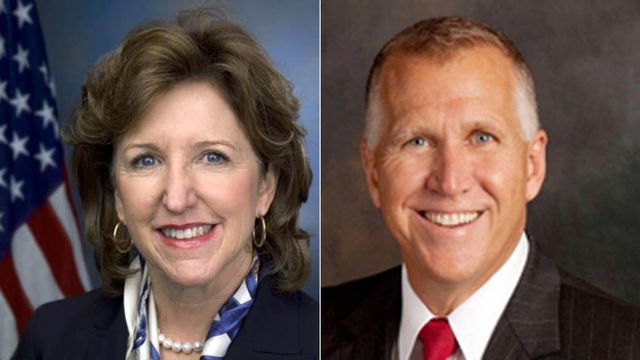Five questions for US Senate debate
Foreign policy, Ebola virus and the unknown loom large in Tuesday's U.S. Senate debate between incumbent Democratic Sen. Kay Hagan and state House Speaker Thom Tillis, her Republican challenger.
Posted — UpdatedHagan's and Tillis' second debate will be hosted by the North Carolina Association of Broadcasters and will be broadcast live at 7 p.m. on WRAL-TV and WRAL.com. The third and final debate is later this week and will include Libertarian Sean Haugh.
Here are five questions going into Tuesday's head-to-head match-up.
1) Will they answer the questions?
During the first debate, the candidates largely recited well-honed talking points rather than responding to questions or interacting with one another. Will moderator George Stephanopoulos, an ABC News anchor, be able to keep the candidates on point, or will policy questions beget answers that quickly turn into attacks on either President Barack Obama or leaders in the North Carolina General Assembly?
2) Will they have the foreign policy answers?
Both Hagan and Tillis cut their teeth working on domestic issues such as health care and education. Foreign policy is in neither one's wheelhouse. Will Hagan or Tillis be able to convince voters that they have the answers to the spread of ISIS militants in Iraq and Syria or Russia's incursions into the Ukraine?
3) How will the recent "scandals" figure into the debate?
The two campaigns have pilloried one another with opposition research meant to persuade voters that their opponents are not trustworthy.
Will candidates leave this back-and-forth to their surrogates and allies or bring these stories into the debate?
4) How will they handle the Ebola question?
5) Will there be "a moment?"
As much as campaigns hope their candidates do well during a debate, they are also on the lookout for a flub by the opposition, something they can use in the days following the debate to rile the base. After the September debate, Democrats and their allies pointed to Tillis using Hagan's first name throughout the night as a sign of disrespect. Will there be a moment or verbal tick that partisans can seize on tonight from either candidate?
Related Topics
• Credits
Copyright 2024 by Capitol Broadcasting Company. All rights reserved. This material may not be published, broadcast, rewritten or redistributed.






